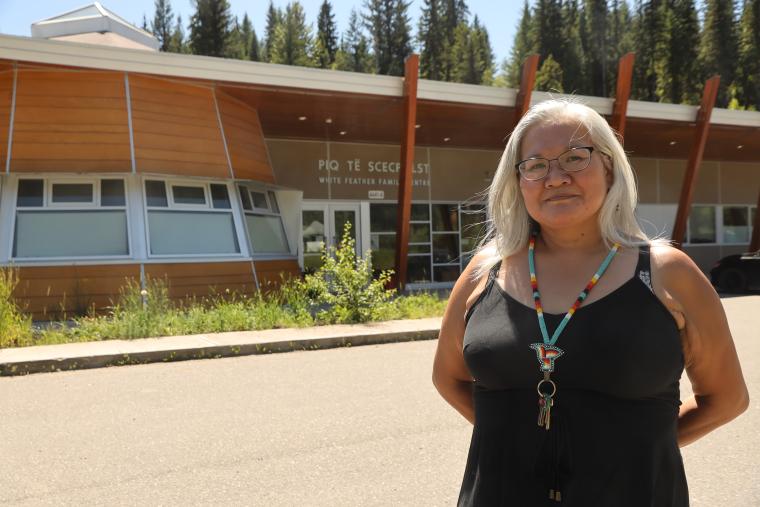- Managing your Practice
-
- Your Benefits
-

Introducing the ultimate Club MD experience
From work to play, and everything in between, we provide you with access to hundreds of deals from recognizable, best-in-class brands, elevating every facet of your life – from practice supports to entertainment, restaurants, electronics, travel, health and wellness, and more. Your Club MD membership ensures that these deals are exclusive to you, eliminating the need to search or negotiate.
Welcome to the ultimate Club MD experience. Your membership, your choices, your journey.
-
- Advocacy & Policy
-
- Collaboration
- News & Events
-

Stay Informed
Stay up to date with important information that impacts the profession and your practice. Doctors of BC provides a range of newsletters that target areas of interest to you.
Subscribe to the President's Letter
Subscribe to Newsletters
-
- About Us
-

Relationship building brings doctors and Indigenous community together
September 9, 2024
JCCs: Collaboration in Action
It started with one phone call.
In 2023, four doctors drive along Highway 97 as the early morning summer sun kissed the Coastal and Rocky Mountain ranges. Travelling from 100 Mile House to Tsq̓éscen̓ First Nation (Canim Lake Band), the doctors were invited into the community through the efforts of Dr Bruce Nicolson, who has spent more than 40 years working in the area. It was through his work that he recognized the need for physicians to learn more about the Tsq̓éscen̓ First Nation’s history, culture, and medical practices, to improve health care outcomes for the local First Nations population.
In partnership with the Nation and through the Specialist Services Committee Facility Engagement initiative, a day of learning was co-designed by White Feather Family Centre and Dr Nicolson to develop trust and respect between the community and the doctors. It also aimed to foster ongoing collaboration amongst health care partners (First Nations communities, Interior Health Authority, and primary health care providers) to move forward with primary care in the community.

The Tsq’escenemc, “The People of Broken Rock”, are members of the Secwepemc Nation with a population of approximately 605. While doctors from 100 Mile House have been providing medical services for the past 40 years at the White Feather Family Centre, Indigenous cultural safety efforts are being made to mitigate the effects of longstanding systemic racism in the health care system by improving cultural safety in the medical facilities in town.
Historically, the local hospital has not been immune to effects of systemic racism in the health care system that is pervasive throughout our country.
“Having the physicians come here gave them a different perspective”, shared Tamara Isaac, White Feather Family Centre Community Health Nurse. “We just want equal care. Regardless of the colour of our skin,” said Isaac.
“(The challenge is) how do you knock down those biases? We need people to recognize that those biases exist within themselves, and that they need to put those biases aside.”
Once the doctors arrived, they were greeted by as many as 40 residents – Elders, the entire staff of the White Feather Family Centre, Canim Lake Band council members, drummers, community members and the youth of the community. The community and physicians had a mutual interest in sharing each other’s cultures, and it was an opportunity for the White Feather Family Centre to provide an overview of the primary care network of services that the provide to their patients.
The half day was spent touring the land and learning about its history, about the role of First Nations art and music in healing and being introduced to the concept of storytelling and the significance it has for Indigenous Peoples. Doctors also participated in a smudging session.
Staff members also spoke to the important role that Elders and family have in creating a healing environment and how it can be challenging when community members do not want to seek out health care due to their past experiences of culturally unsafe care.
“When community members go into the hospital, they're already profiled,” told Gladys Rowan, White Feather Family Centre Community Health Representative/Patient Travel.
It is essential to cultivate meaningful and trusting relationships in order to break down biases to provide culturally safe care.
“Relationship building is big,” explained Isaac. “And I think in order to do that, the physician, the medical teams, need to come out to the communities. They can't expect communities to go there, because I don't think the learnings are the same as when the community goes to them.”
There is a wish for a day like this to become an annual event.
“I hope that more physician groups would contact the reserves that are closest to them and see if that is something that could be arranged to participate in. Just so that physicians working within those communities can see and can learn. And I hope we have more (events). It was a lot of work, but it was a great. It's all about relationships,” expressed Isaac.
In the meantime, in the hospital and in partnership with Interior Health, smudging is encouraged, and Indigenous artwork is being ordered to adorn the walls of the facility. Accompanying the artwork will be pictures of Elders and other community members in Indigenous Regalia. Dr Nicolson is continuing to work with the Canim Lake Band and the Interior Health Authority to make 100 Mile District General Hospital a more welcoming place for Indigenous patients.




